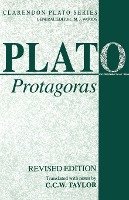In addition to its interest as one of Plato's most brilliant dramatic masterpieces, the Protagoras presents a vivid picture of the crisis of fifth century Greek thought, in which traditional values and conceptions of humanity were subjected to criticism of the Sophists and to the far more radical criticism of Socrates. The dialogue deals with many themes which are central to the ethical theories which Plato developed under the influence of Socrates, notably, the nature of human excellence, the relation of knowledge to right conduct, and the place of pleasure in the good life. This revised edition includes a new Preface and Introduction, as well as numerous changes to the translation and commentary.

